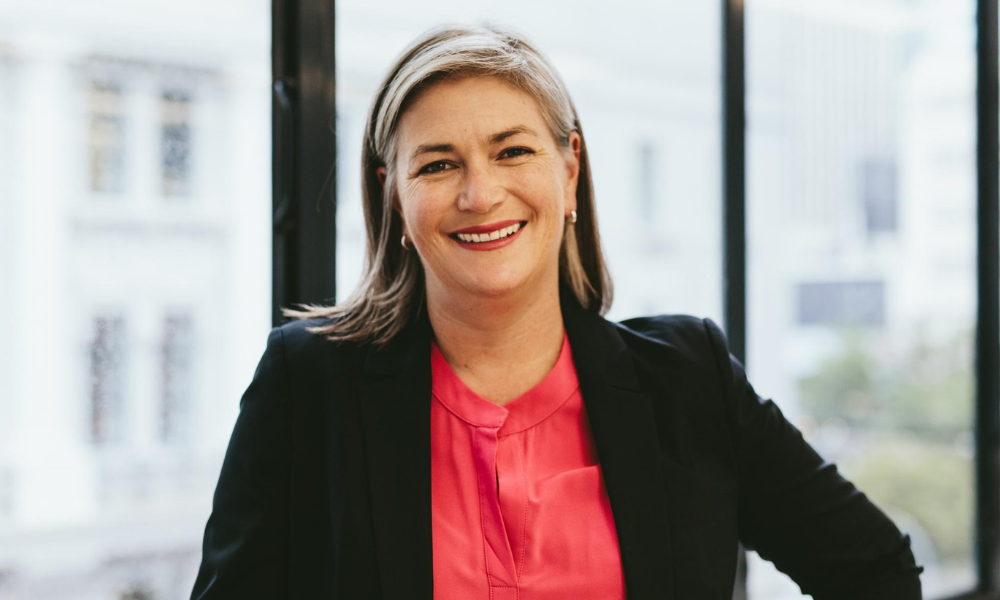
Sally McKechnie urges lawyers to enrich their practice through wider roles

Barrister’s daughter Sally McKechnie learned from a young age that litigation provided significant opportunities for lifelong learning. Her professional curiosity has continued to make practising the law a great experience for her.
Over an illustrious legal career that has seen her establishing and taking the helm on Simpson Grierson’s public law and government practice, McKechnie has become a pseudo-expert in genetic mutations and even assisted with the immigration applications of Afghan refugees pro bono. For McKechnie, lawyers should be on the lookout for wider roles that can enrich their practice of the law and bring benefit to the greater community.
In this interview, McKechnie talks sitting on the boards of not-for-profit and sports organisations, working on the Strathboss kiwifruit litigation, and the appeal of litigation.
What made you choose a career in law, and what's your favourite part of the job?
I am the daughter of a barrister. Watching Dad prepare for different cases as I was growing up made me realise that law, and litigation in particular, is a huge chance for life-long learning. We often need to learn about new areas and information relevant for the case and I love the variety that brings.
In terms of public law, I rather fell into it by accident. I studied internal law in university in the UK and when I came back to New Zealand, I joined Crown Law in the international law and treaty team. The team didn’t do quite as much pure “international law” as my 20-something self might have hoped, but it did give me a broad grounding in Treaty of Waitangi issues and constitutional public law. I then worked in a number of more general public law teams within Crown Law over the next decade. I joined Simpson Grierson in 2017 to found our public law and government team.
My favourite part of my role in recent years has been building a new team and new specialist practice area within Simpson Grierson. I’ve learnt new skills and needed to embrace new challenges to succeed in this role – and I’ve relished the test of doing that.
What is the most memorable case you've taken on/been involved in?
Probably the most memorable – and lengthiest – case to date is the Strathboss kiwifruit litigation, a tort claim against the Crown relating to alleged biosecurity breaches for Psa in the Bay of Plenty. It was a hugely important case for the development of tort law in New Zealand, and for clarifying the limits of Crown liability. It was also very significant in terms of the size of the case and very absorbing in its complexity. It was heard over 12 weeks, with many very specialised expert witnesses. The intersection of common law, the statutory scheme and scientific knowledge was fascinating.
Opportunities to be professionally curious, learn new things and make new connections is what really appeals to me about being a litigator. As part of the Strathboss case, to be able to question the experts, I needed to become a temporary pseudo-expert in genetic mutations in Psa bacteria. The same principles apply to the viral mutations of COVID-19, so this knowledge has become unexpectedly relevant to current events.
What has been your proudest accomplishment in the last year or so?
My team and I were very proud to assist in successfully reviewing the Minister’s decision on Afghan refugee immigration applications.
We had all watched in horror at what was happening in Kabul as the Taliban arrived. A number of people trying to come to safety in New Zealand were being thwarted by what appeared to be flawed government decision making. It was very meaningful to be able to assist through Simpson Grierson’s pro bono programme. Being able to use our public law skills to hold the government to account for such a vulnerable group was a very rewarding experience for all of us.
What’s the biggest lesson you learned in the past year and what advice can you give fellow lawyers about it?
The value of cross-pollination. I have a number of non-legal roles on boards, in the not-for-profit and sporting sector. The perspectives around the board tables of these organisations, and the different skills deployed in these roles have hugely enriched my practice of law.
I would encourage all lawyers to seek out wider roles where we can contribute our analytical skills and inquiring minds. As a profession, we have much to offer the wider community and in turn, there is much we can learn and bring to the law.
What are you looking forward to the most in the coming year?
Is it tempting fate to ask for the end of the pandemic? Many of my cases have been impacted and delayed by COVID-19, and all of my clients have been impacted in some way. Like them and everyone else, I am very much looking forward to the post-pandemic era.